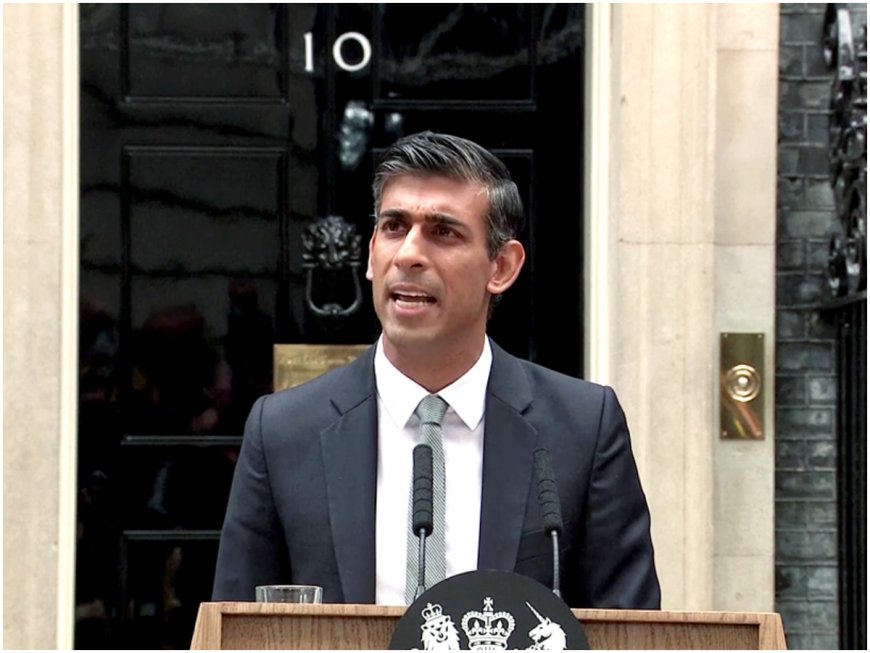UK General Elections 2024: Here’s How President Is Elected, Electoral Process, Parties And Key Contenders
The UK Parliament has a two-house system made up of the House of Commons and House of Lords, sitting at the Palace of Westminster. The House of Commons is composed of 650 members of Parliament (MPs) elected by the people.

The United Kingdom’s general elections campaign concluded just hours before the nation geared up to cast their votes on July 4. The Conservative Party’s current rule may come to an end as Prime Minister Rishi Sunak vies for another term, while the Labour Party anticipates a significant victory. PM Sunak remains optimistic, stating that the Conservatives are still ‘fighting hard,’ despite predictions of a ‘landslide defeat’ by a close ally. According to opinion polls, the centre-left Labour Party is poised for a substantial win, potentially ending the 14-year Conservative government tenure. The election results are expected to be announced early on Friday, with Labour Party leader Keir Starmer likely to assume the role of Prime Minister at 10 Downing Street.
How Does the UK Elect Its President?
The UK is gearing up for elections in 650 constituencies, where voters will choose their representatives for the House of Commons. Using the first-past-the-post system, candidates must secure more votes than their opponents to win a seat in Parliament. A crucial threshold for any party is to win 50 percent of the seats, which amounts to 326 seats, to form a majority government. Once this milestone is reached, the party is invited by the monarch, King Charles III, to establish a government. Unlike the House of Commons, members of the upper chamber, the House of Lords, are appointed rather than elected.
If no party wins a majority, there is a hung parliament.
Political System in the UK
The UK operates as a constitutional monarchy, with King Charles III serving as the symbolic head of state. While the monarch’s duties are largely ceremonial, such as granting royal assent on bills, the real power lies within the two-house system of Parliament. House of Commons and House of Lords, sitting at the Palace of Westminster.
The House of Commons is composed of 650 members of Parliament (MPs) elected by the people.
Unlike the House of Commons, the number of members in the House of Lords is not fixed. As of June 20, 2024, it has 784 sitting members. It is made up of life peers, hereditary peers and bishops.
Leading the executive branch is the prime minister, responsible for implementing laws and appointing Cabinet members. The Cabinet comprises senior ministers who head various government departments. The prime minister serves a five-year term.
Additionally, the UK has devolved governments like the Scottish and Welsh Parliaments and the Northern Irish Assembly, each with some legislative authority.
UK’s current parliament
- The Conservatives – 344 seats (52.9 percent)
- Labour – 205 seats (31.5 percent)
- The Scottish National Party (SNP) – 43 seats (6.6 percent)
- The Liberal Democrats – 15 seats (2.3 percent)
The remaining 43 seats were held by nine other parties and independents.
Key contenders and parties in UK elections
- The Conservatives, also known as the Tories, are a centre-right-to-right party, currently led by Rishi Sunak, who took over from Liz Truss in October 2022.
- Labour are a centre-left party, led by Keir Starmer. They were last in power between 1997 to 2010 under Tony Blair and Gordon Brown.
- Liberal Democrats, centre to centre-left aligned, led by Ed Davey. In power from 2010 to 2015 in coalition with Conservatives under Cameron and Deputy Prime Minister Nick Clegg, then leader of the Liberal Democrats.
- Greens, left-wing eco-politics, led by Carla Denyer and Adrian Ramsay.
- Reform UK, right-wing party led by Nigel Farage.
- SNP, Scottish National Party led by John Swinney.
- Plaid Cymru, centre-left-to-left-wing Welsh party, led by Rhun ap Iorwerth.
- DUP, Democratic Unionist Party, led by Gavin Robinson.
Key Issues for the 2024 UK General Election?
According to a survey by the polling company YouGov, the most critical issues for Britons ahead of the 2024 general election include the economy, healthcare, immigration, the housing crisis, and the environment. The survey results, as of June 24, are as follows:
- The economy: 52 per cent
- Health: 50 per cent
- Immigration and asylum: 40 per cent
- Housing: 24 per cent
- Environment: 20 per cent
Polling and projections
Labour has secured a significant lead in the latest polls, positioning them as the top contender for a majority win in the upcoming 2024 UK general election. The Conservative party, on the other hand, is grappling with historic lows in poll numbers, facing a challenging mathematical scenario due to the concentration of their supporters in constituencies under threat. Moreover, the emergence of Reform UK poses an additional obstacle for the Conservatives in these crucial areas.
What's Your Reaction?



























































